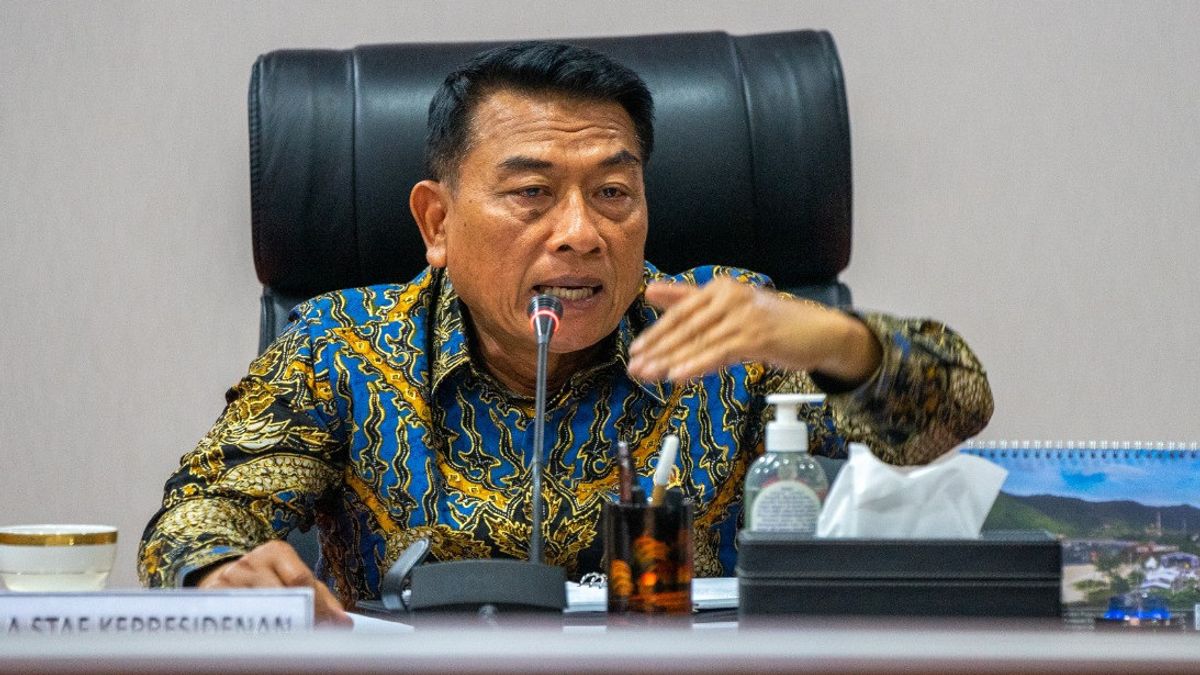JAKARTA - Presidential Chief of Staff Dr. Moeldoko ensured that the government opened the door to cooperation with all parties to strengthen national food security. Moeldoko conveyed this when receiving the arrival of the World Food Bank or World Food Bank, at the Bina Graha building, Jakarta, Tuesday 11 October.
For information, the World Food Bank or World Food Bank is an integrator in the agricultural sector based in the United States. His arrival at the Presidential Staff Office was to explore cooperation with the Indonesian government in optimizing the agricultural sector through an integrated system from upstream to downstream.
We welcome the World Food Bank's desire to improve the Indonesian agricultural sector. This is in line with President Jokowi's commitment to increase national food security in dealing with the threat of a global food crisis," said Moeldoko.
Moeldoko said that the Indonesian government continues to increase production to ensure food adequacy in the country, and at the same time contribute to world food adequacy. For this reason, he continued, the government through the Ministry of Agriculture has built an integrated agricultural system from upstream to downstream. Not only to optimize production, but also welfare for farmers.
He gave an example, the development of agricultural infrastructure, namely dams, reservoirs, and irrigation networks, to increasing beni and offtaker varieties as a link between farmers and the market.
Meanwhile, World Food Bank CEO or World Food Bank Richard Lackey emphasized the importance of optimizing the agricultural sector with an information technology approach. He also gave an example of using the World Food Bank application for farmers in Kenya and Uganda.
"With this application, farmers can monitor their agricultural location, how to estimate the weather, when to start planting, and farmers also receive warnings about pests and diseases," he explained.
Not only during the planting process, Richard claimed, the World Food Bank was also offtaker for harvest, so farmers were protected when prices on the market fell.
We buy farmers' crops at prices above the market. Then we store them in a place that we close with an airtight pocket. This can last fifteen to twenty years. So when the food supply runs out, then the stock is distributed to the market so that the availability and certainty of prices are maintained," explained Richard.
"We want to replicate this in Indonesia," he added.
For information, the World Food Bank plans to cooperate with farmers in Indonesia. This form of cooperation is by providing assistance and assistance to farmers, both in the form of seeds and capital.
The World Food Bank will also buy farmers' products and connect them to the market, both domestically and globally.
The English, Chinese, Japanese, Arabic, and French versions are automatically generated by the AI. So there may still be inaccuracies in translating, please always see Indonesian as our main language. (system supported by DigitalSiber.id)













